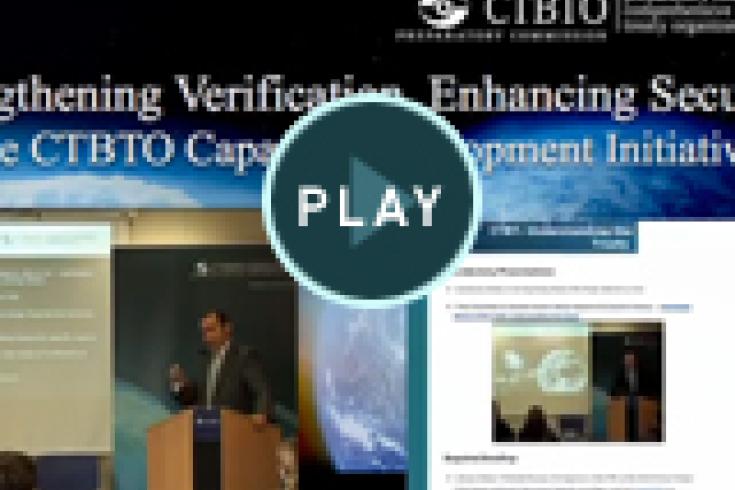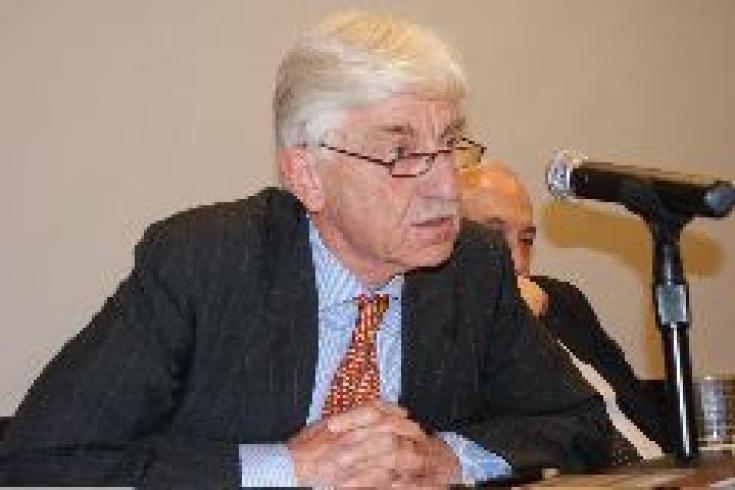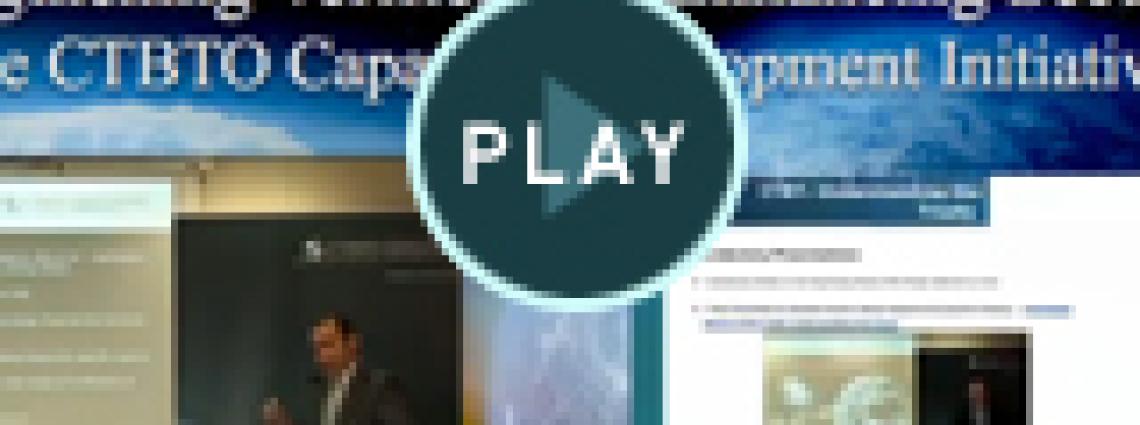CTBT course enjoys worldwide interest
In addition to around 100 participants who attended the course in Vienna, more than 120 participants followed the course online via live-streamed or archived video lectures. Participants from a total of 79 countries took part in the course, including 63 diplomats and 25 United Nations Disarmament Fellows. A number of high-level officials and senior academics attended the opening ceremony, including Professor Helmuth Böck of the Institute of Atomic and Subatomic Physics at the Vienna University of Technology and Professor Götz Bokelmann of Department of Meteorology and Geophysics at the University of Vienna.

Click for promo video of the course.
- The political aspects of the Treaty and its contributions to fostering international security and promoting nuclear disarmament and non-proliferation;
- The technologies underpinning the CTBT verification regime;
- The civil and scientific applications of CTBT monitoring technologies, including the contribution to the Fukushima crisis response.
CTBTO Executive Secretary Tibor Tóth
The bottom line is, in spite of the fact there are things you lose by not testing, you lose a lot more by going back to testing.
Dr Siegfried Hecker
The negotiations did not take place in a political vacuum. There was a synergy and there were a number of factors coming together.

Ambassador Jaap Ramaker
The CTBT directly underpins the NPT by inhibiting the development of new nuclear weapons and refinement of existing ones.
U.S. Ambassador Davies expressed his country's support: “The CTBT, which has been signed by 182 states and ratified by 154, plays a key role in a global nuclear non-proliferation and disarmament regime. The foundation of that regime is the Nuclear Non-proliferation Treaty or the NPT, the CTBT directly underpins the NPT by inhibiting the development of new nuclear weapons and refinement of existing ones.”
From right to left: U.S. Ambassador Glyn T. Davies, New Zealand Ambassador Phillip Wallace Griffiths, UK Ambassador Simon Smith, Irish Ambassador James Brennan and Indonesian Permanent Mission representative Aris Munar.
Our government is absolutely firmly convinced that we have done the right thing in promoting and supporting and helping this treaty coming into being…. Sometimes I describe [the CTBT] as a treaty in action, even though it may not be strictly speaking in force.
Participants also toured the radionuclide test station located on the rooftop of the Vienna International Centre, as well as the CTBTO Operations Centre, which receives and processes all information in real-time from the CTBT’s International Monitoring System stations.
The course provided a great picture of the Treaty, its history, the negotiations, also the verification system and the pillars upon which it’s based.
Background: The CTBTO’s Capacity Development Initiative (CDI)
The CTBTO will be holding an advanced technical course in late 2011 as the next component of the CDI, which will examine in depth the scientific and technical aspects of the Treaty’s verification regime. Similar to the introductory course, the advanced live lecture courses will be live-streamed from Vienna for those who wish to participate virtually, and the lectures will be archived within the online distance-learning platform for later viewing.
Details and registration information will follow soon. Queries can be addressed to Mr Kevin Murray, Tel.: +43 1 26030 6288.
14 Sep 2011
